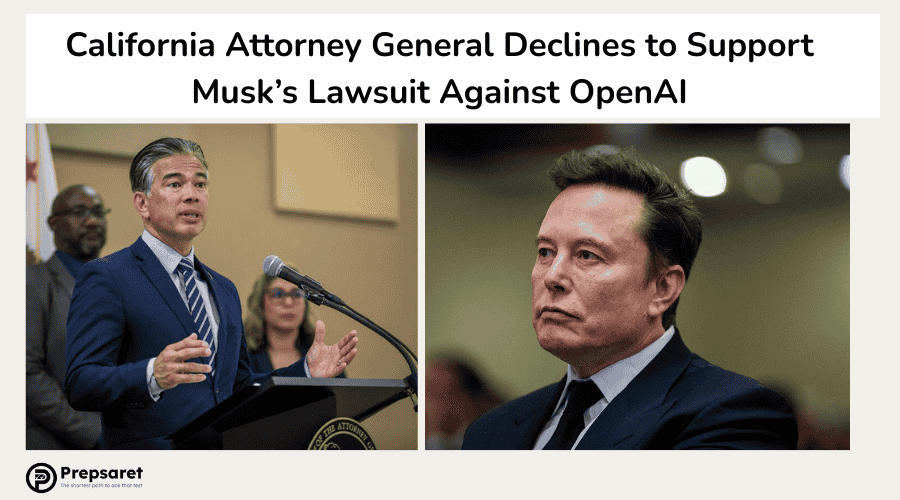Key Takeaways:
- The California Attorney General has declined to support Elon Musk’s lawsuit against OpenAI.
- Musk accuses OpenAI of straying from its non-profit mission, but the Attorney General found no sufficient public benefit to Musk’s claims.
- OpenAI is seeking to transition to a for-profit model to raise $40 billion in funding, a move Musk opposes.
- The Attorney General’s decision adds complexity to the legal proceedings, with Musk’s motivations under scrutiny.
The legal conflict between Elon Musk and OpenAI took a significant turn as the California Attorney General’s office chose not to support Musk’s lawsuit against the organization.
The lawsuit, filed by Musk, accuses OpenAI of deviating from its founding mission as a non-profit entity and pursuing a for-profit model that, according to Musk, threatens the original goal of ensuring artificial intelligence benefits humanity.
Musk’s Legal Action and Concerns About Commercialization
Musk’s legal action centers around OpenAI’s attempt to remove its non-profit board and transition to a structure that offers equity stakes to investors.
He argues that this shift prioritizes corporate profit over the public good and strays from the organization’s founding principles.
Musk’s stance is further fueled by his personal involvement with xAI, an AI company he founded in 2023, leading to speculation that his legal actions may be motivated by competitive interests rather than solely ethical concerns.
Related: OpenAI Strikes Back in Legal Clash with Elon Musk
California Attorney General’s Decision and Legal Implications
However, the California Attorney General’s office has declined to back Musk’s lawsuit, stating that Musk failed to demonstrate how the legal action serves the public interest.
The office also expressed concerns that Musk’s motives might be self-serving, particularly after he attempted a $97 billion bid for control of OpenAI earlier this year.
The Attorney General’s decision underscores the complexities of the case and raises questions about Musk’s true intentions in the legal battle.
OpenAI’s Need for a For-Profit Model
While the lawsuit itself faces hurdles, the Attorney General’s office remains involved in the matter due to OpenAI’s operations in California.
OpenAI, led by CEO Sam Altman, argues that the shift to a for-profit model is necessary to secure critical funding, particularly a $40 billion investment, that will enable the company to continue advancing its AI technologies.
OpenAI maintains that this move will allow the organization to remain competitive and sustain its research efforts.
Despite the setback, Musk’s legal pursuit continues, with the case set for a jury trial in spring 2026. The outcome of this lawsuit could have far-reaching consequences for AI governance, shaping both the ethical and corporate landscape in the industry.
The Attorney General’s decision not to support Musk adds another layer of complexity to the ongoing debate over the commercialization of AI and its implications for the public good.
Also in the News:

